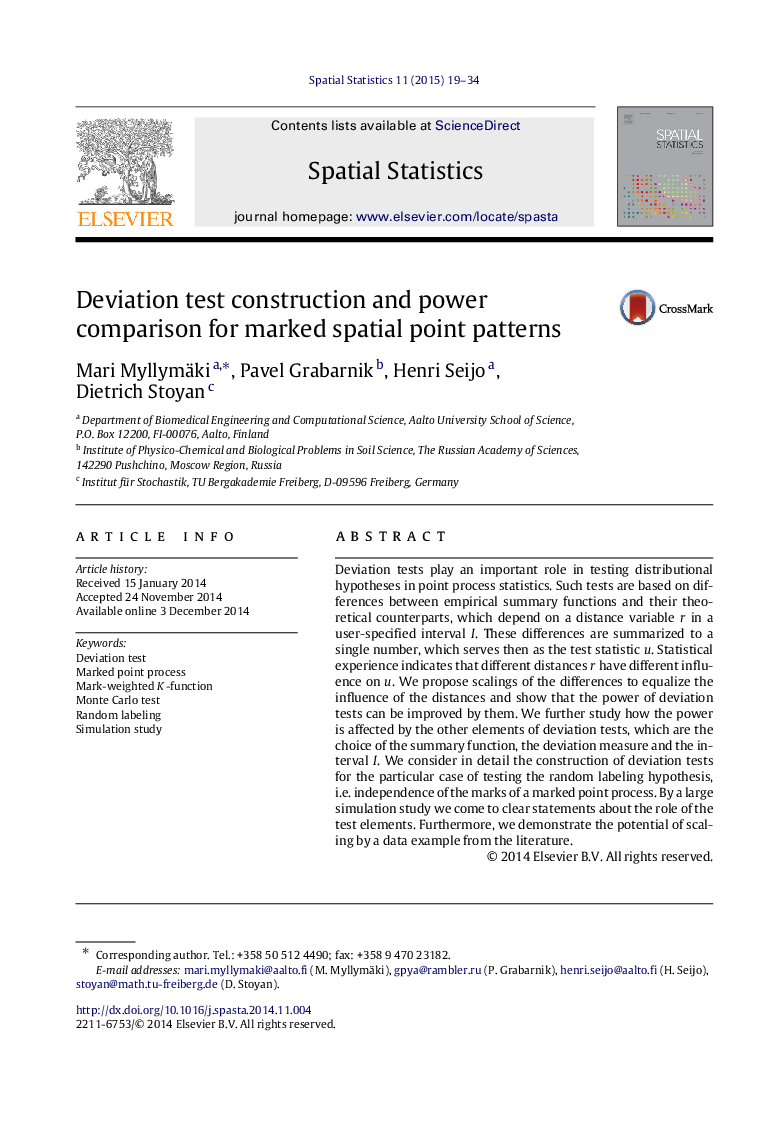| Article ID | Journal | Published Year | Pages | File Type |
|---|---|---|---|---|
| 7496589 | Spatial Statistics | 2015 | 16 Pages |
Abstract
Deviation tests play an important role in testing distributional hypotheses in point process statistics. Such tests are based on differences between empirical summary functions and their theoretical counterparts, which depend on a distance variable r in a user-specified interval I. These differences are summarized to a single number, which serves then as the test statistic u. Statistical experience indicates that different distances r have different influence on u. We propose scalings of the differences to equalize the influence of the distances and show that the power of deviation tests can be improved by them. We further study how the power is affected by the other elements of deviation tests, which are the choice of the summary function, the deviation measure and the interval I. We consider in detail the construction of deviation tests for the particular case of testing the random labeling hypothesis, i.e. independence of the marks of a marked point process. By a large simulation study we come to clear statements about the role of the test elements. Furthermore, we demonstrate the potential of scaling by a data example from the literature.
Keywords
Related Topics
Physical Sciences and Engineering
Earth and Planetary Sciences
Earth and Planetary Sciences (General)
Authors
Mari Myllymäki, Pavel Grabarnik, Henri Seijo, Dietrich Stoyan,
